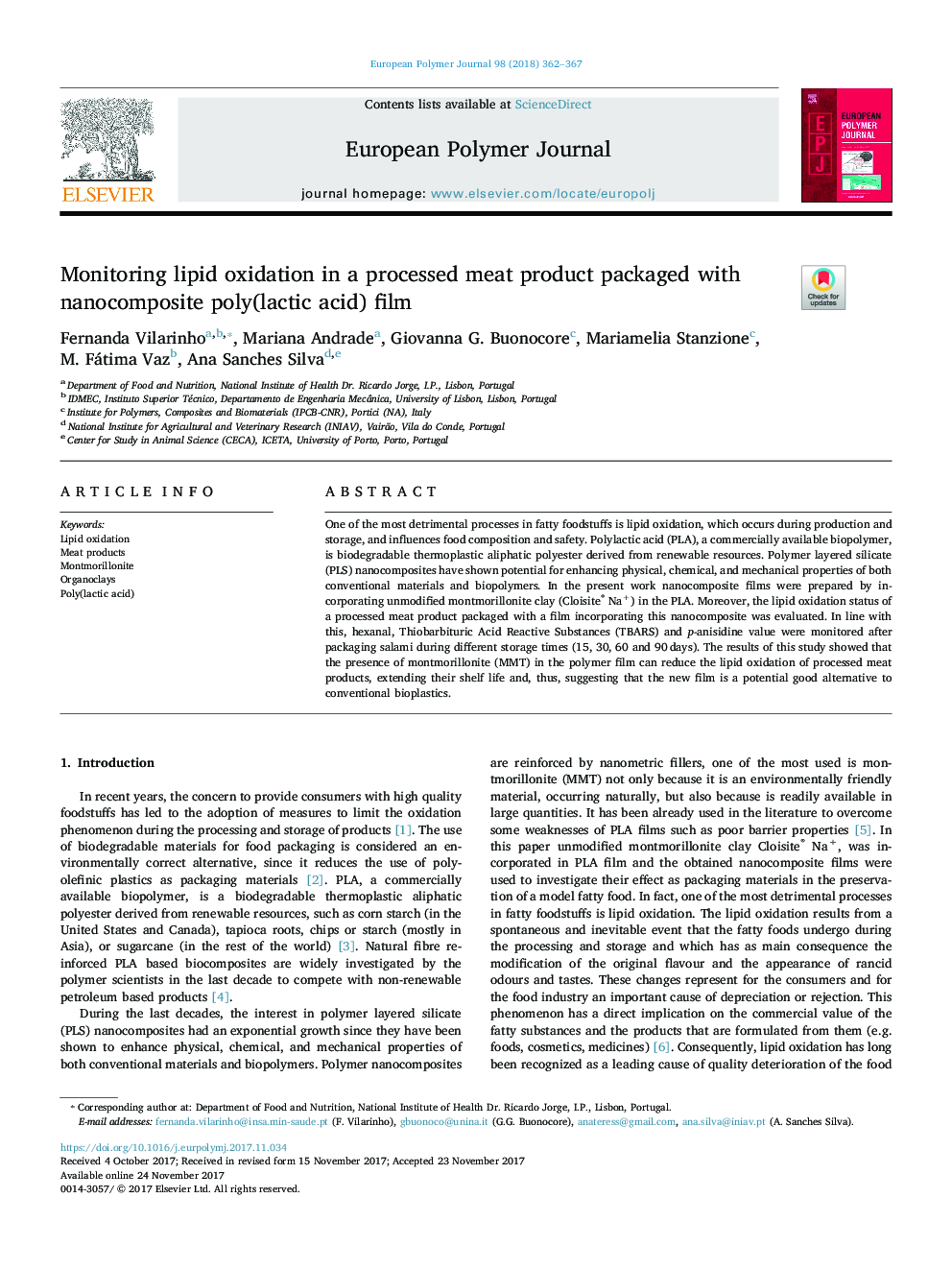| Article ID | Journal | Published Year | Pages | File Type |
|---|---|---|---|---|
| 7804024 | European Polymer Journal | 2018 | 6 Pages |
Abstract
One of the most detrimental processes in fatty foodstuffs is lipid oxidation, which occurs during production and storage, and influences food composition and safety. Polylactic acid (PLA), a commercially available biopolymer, is biodegradable thermoplastic aliphatic polyester derived from renewable resources. Polymer layered silicate (PLS) nanocomposites have shown potential for enhancing physical, chemical, and mechanical properties of both conventional materials and biopolymers. In the present work nanocomposite films were prepared by incorporating unmodified montmorillonite clay (Cloisite® Na+) in the PLA. Moreover, the lipid oxidation status of a processed meat product packaged with a film incorporating this nanocomposite was evaluated. In line with this, hexanal, Thiobarbituric Acid Reactive Substances (TBARS) and p-anisidine value were monitored after packaging salami during different storage times (15, 30, 60 and 90â¯days). The results of this study showed that the presence of montmorillonite (MMT) in the polymer film can reduce the lipid oxidation of processed meat products, extending their shelf life and, thus, suggesting that the new film is a potential good alternative to conventional bioplastics.
Related Topics
Physical Sciences and Engineering
Chemistry
Organic Chemistry
Authors
Fernanda Vilarinho, Mariana Andrade, Giovanna G. Buonocore, Mariamelia Stanzione, M. Fátima Vaz, Ana Sanches Silva,
